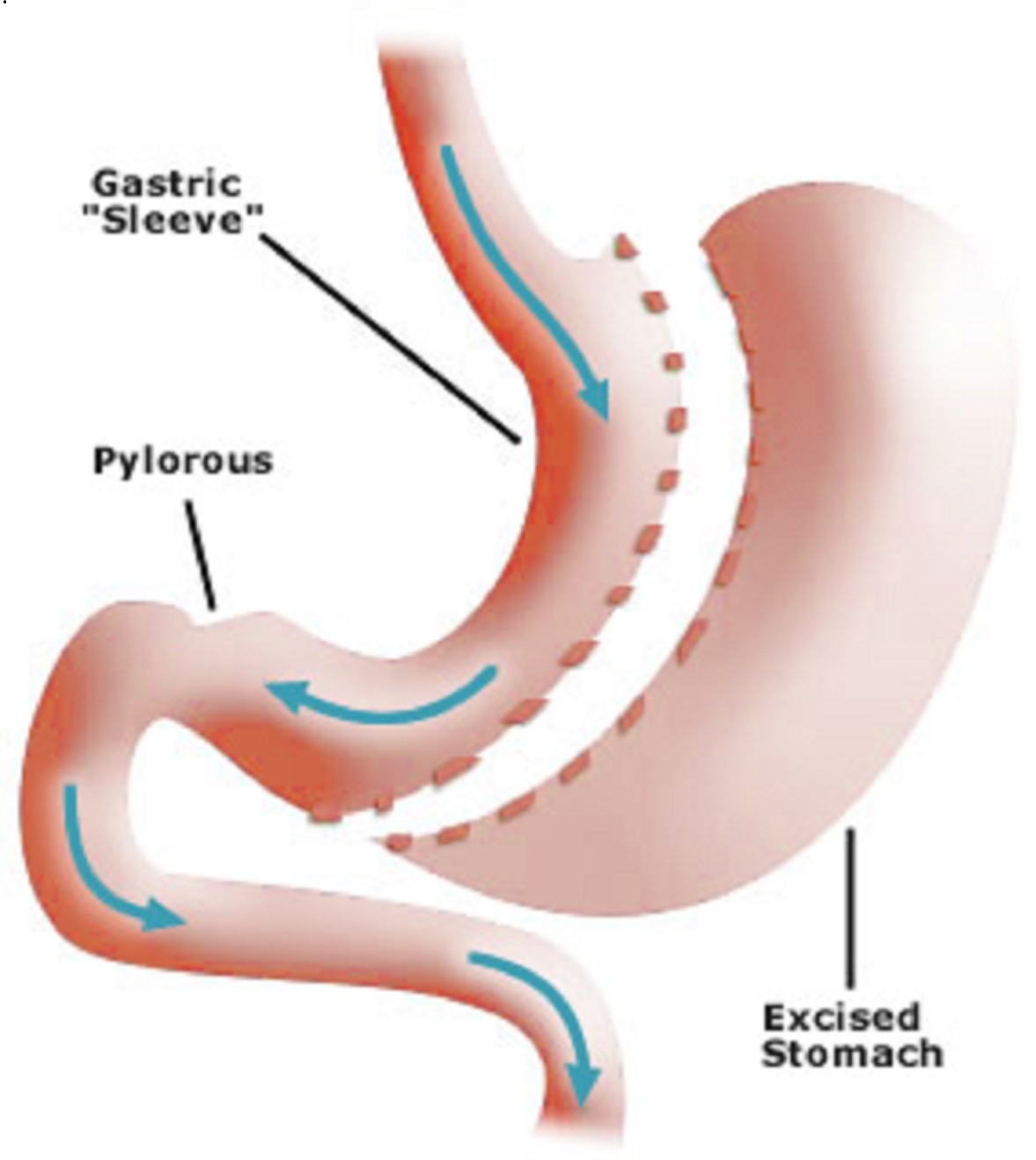Lapsurgery.com.au, Sleeve Gastrectomy A Comprehensive Overview – Sleeve Gastrectomy, also known as gastric sleeve surgery, is a surgical procedure aimed at weight loss and treating obesity. This article provides a comprehensive overview of Sleeve Gastrectomy, including its procedure, benefits, potential risks, and post-operative considerations.
Procedure Sleeve Gastrectomy:

Sleeve Gastrectomy involves the removal of a large portion of the stomach, leaving behind a sleeve-shaped tube or pouch. This reduction in stomach size restricts the amount of food that can be consumed, leading to weight loss.
Benefits:
Significant Weight Loss: Sleeve Gastrectomy often results in substantial weight loss, making it an effective option for those with obesity.
Metabolic Improvements: The surgery can lead to improvements in various obesity-related conditions, such as type 2 diabetes and hypertension.
Reduced Hunger: The procedure reduces the production of hunger-inducing hormones, contributing to decreased appetite.
Potential Risks:
Infection: As with any surgery, there is a risk of infection. Strict adherence to post-operative care guidelines helps minimize this risk.
Bleeding: Excessive bleeding during or after surgery is a potential complication that requires prompt medical attention.
Gastrointestinal Issues: Some individuals may experience gastrointestinal symptoms, such as acid reflux, following the surgery.
Post-Operative Considerations:
Dietary Changes: Patients must adhere to a specific diet progression, starting with liquids and gradually transitioning to solid foods.
Nutritional Supplements: Due to the reduced stomach size, patients may need to take nutritional supplements to meet their body’s requirements.
Regular Monitoring: Continuous follow-up with healthcare professionals is essential to monitor weight loss progress and address any potential complications.
Lifestyle Changes:
Exercise: Incorporating regular physical activity into one’s routine is crucial for optimizing weight loss and maintaining overall health.
Psychological Support: Many individuals benefit from psychological support to address emotional aspects of weight loss and body image.
Sleeve Gastrectomy is a well-established and effective surgical intervention for weight loss. While it presents numerous benefits, it is essential for individuals considering this procedure to thoroughly discuss potential risks and lifestyle changes with their healthcare providers. As with any medical intervention, informed decision-making is key to a successful outcome.
Successful weight loss through Sleeve
Gastrectomy requires a long-term commitment to lifestyle changes. Patients are encouraged to adopt healthy eating habits and regular physical activity to maintain their weight loss.
Ongoing Support: Support groups and counseling can provide continued assistance for individuals navigating the challenges of post-surgery life, offering a sense of community and shared experiences.
Patient Selection and Eligibility:
Not everyone is a candidate for Sleeve Gastrectomy. Healthcare professionals carefully assess factors such as BMI, overall health, and the presence of obesity-related comorbidities to determine eligibility.
Preoperative Evaluation: Before undergoing the surgery, patients undergo a thorough evaluation, including physical examinations and discussions about medical history, to ensure they are prepared for the procedure.
Evolution of Surgical Techniques:
Advances in medical technology and surgical techniques have contributed to the refinement of Sleeve Gastrectomy procedures, leading to improved safety and reduced recovery times.
Minimally Invasive Approaches: Many surgeries are now performed using minimally invasive techniques, such as laparoscopy, which can result in smaller incisions and faster recovery.
Considerations for Special Populations:
Sleeve Gastrectomy may be considered for certain special populations, such as adolescents with severe obesity. However, these cases require careful evaluation and specialized care.
Potential Complications Over Time:
While Sleeve Gastrectomy is generally safe, potential long-term complications may include vitamin deficiencies and the need for ongoing monitoring of nutritional status.
Regular Check-ups: Routine medical check-ups and follow-ups are essential to address any emerging complications promptly.
Closing
In conclusion, Sleeve Gastrectomy is a transformative procedure offering significant benefits for individuals struggling with obesity. However, its success depends on a holistic approach involving lifestyle changes, ongoing support, and careful medical management. Prospective patients should engage in open and thorough discussions with their healthcare providers to make informed decisions about the suitability of Sleeve Gastrectomy for their individual circumstances.

